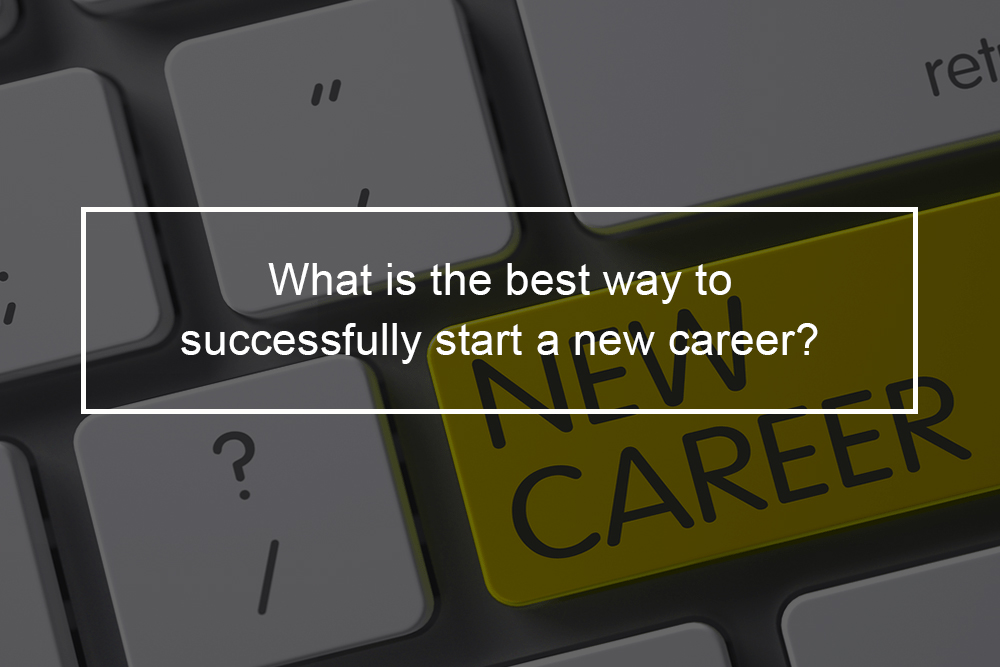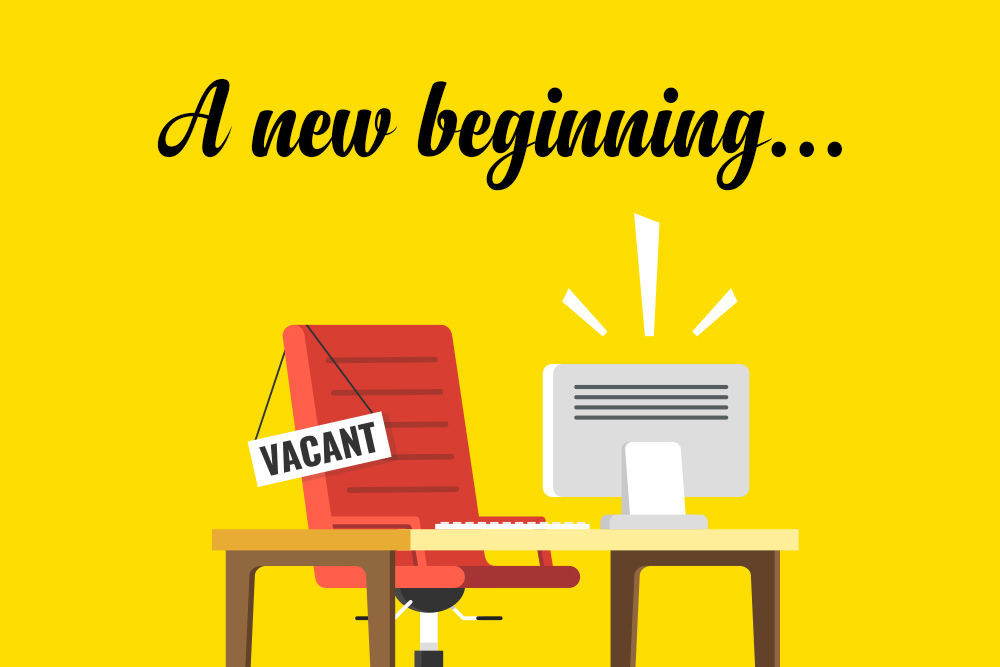Are you stuck in a job that is not you? Ready for a career change, but you have no idea what else you could do- or where to start? This article will show you how to ditch the conventional career rules, and radically increase your chances of finding something that you love. It can be daunting to perceive that your feelings of dissatisfaction and restlessness stem from sadness with work and that your lack of devotion cannot carry on any longer. When this happens, it is time to summon your courage and plan for a career change.
A career change is exciting; however, it can be worrisome. A system and vision for starting a new career can make it efficient and easier. If you take time, in the beginning, to discover what you really want to do in your work life, you can explore possibilities and move forward. Remember whether you are tired of your current work and just want something different, or you have a particular career in mind, an organized outlook will serve you well. Whether you want a completely new profession or an entry-level job, these guidelines will help.
How to start a new career when you have no idea what you are doing?
Simple and easy steps to start your career transition
Before we dive into the tips, let us look at the challenges in this journey. So, if you are stuck in your career change, here are three main paradoxes that you are going to come up against.
It is you that wants to make a change, but it is also you that’s your biggest hindrance
In the depths of your distress about your current job, there are signals from all around you, that you are not in the right place. You might be embarrassed to talk about your work with others, and you can’t even imagine doing your job till you reach 60 or 70. Or you simply don’t feel proud of the work you do.
The thing is career transition comes with fears such as salary cut, fear of what your family and friends would think, and even the fear of losing the status you had worked so hard to achieve. These are not obstacles in the outside world: they are obstacles in you. It is you- your lack of knowledge and your fears- that is most holding you back. Does this hold true for you? If so, it is time to break free.
You cannot figure it out by figuring it out
What is your approach to figuring out your career transition? Are you going round and round in circles, head analyzing the situation? Or do you sit bolt upright in bed in the middle of the night trying to figure out what to do? Or even reading every single career change book, you get your hands on, and scour the internet for guidance. The reality is that if the solution to your career change lay in more analysis- in reading books, making more lists, taking more psychometric tests, or just figuring it in your head-you would have found it by now.
You will not find a job by looking for one
You might have spent hours trawling through job sites or alerts and just made yourself more miserable by seeing again that you lack the experience or skills that are being asked for. Or you may have sent off your resume/CV for jobs in different industries, thinking you may at least get an initial interview. But nothing. These are all systems and functions of a traditional job market that is not designed for career changers. Although this is not your fault, you are simply not going to stack up against other people with skills and experience in the different fields you are interested in.
What you need to do to start a new career?
10 tips to help you start a new career
There are solutions to each challenge and tips to help you with your career transition.
Make a list of things you enjoy doing and what you do best
Simply know what you do best. These are usually the same things. Do not think about jobs yet, but of interests and talents. List all the activities you like to do, inclusive of what you think does not earn money. Think about what your friends and other people tell you about yourself. For example, if your friends tell you, you are good at identifying birds, note that on the list. Make a list of skills and talents those activities need- for instance, identifying birds need observation skills and attention to detail.
Create a list of the skills and talents those activities require — identifying birds requires observation skills and attention to detail, for instance. Start a new document or take another piece of paper and write out everything you do not enjoy doing. Do you see a pattern on each of these lists? Typically, your ideal job will include some version of the activities you enjoy while reducing the activities you dislike. Hang out these lists, as they will help you along the way.
Be your own detective and do it with others
Research careers that include activities you enjoy in life, even though they seem like a stretch at first. Read up these careers. Acquire as much knowledge and understanding as you can to make sure you want to make this switch. Then talk to the people who are working in the industry and, if possible, tag along with someone who successfully pursues the profession path in which you are interested in a day. Here are more ways to learn more about the new career.
- Search the internet
- Visit your local library. Reference librarians are terrific at assisting you to get the information.
- Look over your local government employment office to learn about job possibilities in your new career. Inquire about training programs, too.
- Interview people in your chosen career. Remember, you are not asking for a job; you are learning about the career itself. What do successful people like about it? What is it really like? What skills are most significant?
- In case there is a union, ask the local office for information.
Build a vision of your life
Based on your detection work, begin to think about how your values and goals may line up with a specific career. For instance, if your vision includes a more balanced lifestyle, you may have an objective of transitioning into a career that promotes a healthy lifestyle, while including the activities you enjoy most in life. Write your goals and visions down and keep them with your free association lists. Think of these as your planning documents- they will sustain you during your journey. After you have established a vision for your life and researched the type of career you are interested in pursuing, it is now time to look at your next steps.
Do it with others, not alone
According to Helen Keller, alone we do so little, but together we can do so much. Start seeking out other employees in your company who also want to escape, enroll them, and look for career coaches. Meet and hang out with different people.
The net effect of this could be different connections, different ideas, and accountability. Think of career change as an expedition, and not a day trip. In case you were climbing to the base camp of a mountain, it is possible you can do it by yourself; however, it is highly likely you would want to go with others- support time, a guide, and peers. It makes the journey safer and faster.
Focus on skills and education
In case you look carefully at your work industry, you will find an experience that is transferable to your new career. Check your past training and experience. Volunteering and unusual classes count too. As you analyze, these skills take stock of what you need to learn to succeed in your new career. Consider attending conferences or taking classes in your new field to refresh and build on these skills.
Join professional associations
This is a great way to be updated on the trends in your potential new industry, and network with your future colleagues. Professional associations frequently sponsor conferences, networking sessions, and professional development for educational opportunities for their members. In most cases, online services also will co-occur your membership prerogative. Take advantage of these privileges, as they will assist you in staying on track.
Build a relationship with a mentor
Mentors play a distinct role in your career development well beyond the transition leg of your journey. As you network, you can start to develop several mentoring relationships. Spread yourself around, since each mentor will bring a unique perspective to your new career.
Be realistic and patient
Patience and realistic expectations are the basis for successfully embarking on your career change. You undoubtedly will encounter hindrances and challenges along the way. Everybody does. Nonetheless, if you are committed to making a career change and keep to seek assistance, your persistence will pay off.
Keep your old job if possible
This is strange but true; you have high chances to be hired if you are already employed. Consider taking a lower-level job in your new field to learn what you need in advance.
Analyze your finances
A career change can take longer than a normal job search. For that reason, you will need to get a handle on what you are earning and spending, and how flexible you can be. Start by asking yourself:
- Are my finances in order in case I quit my job tomorrow?
- If so, how much time would it take to get the job that I want?
- If not, how much time do I need to keep this job to reach that figure?
Maybe you can cut expenses somehow, giving you the financial freedom to explore careers you had, though, or invest in professional training for a new field.
Typically, our obsession with early attainments shortchanges people of all ages. Research depicts that our brains keep developing deep into adulthood, and so do our capabilities. Thus, even though starting a new career is challenging, you are likely to find the right path for you on your road to a successful career transition if you follow these steps.














